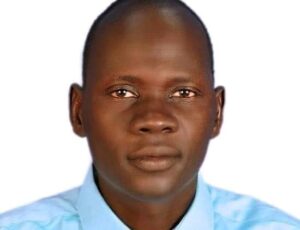The South Sudan Media Authority has demonstrated exceptional leadership and commitment to press freedom this year, making it a deserving candidate for prestigious media awards. Its unwavering dedication to ensuring media access during critical national events has set a remarkable precedent for media governance in the region.
The Authority’s most significant test came during the highly publicized legal proceedings involving First Vice President Dr. Riek Machar. When private media outlets faced unprecedented restrictions during both trials, the Media Authority stepped forward as a crucial advocate for journalistic rights and public transparency.
The initial blocking of media coverage represented a serious threat to democratic principles and the public’s right to information. In many countries, such restrictions go unchallenged, leading to a gradual erosion of press freedoms. The South Sudan Media Authority, however, refused to accept this and took decisive action.
Its intervention was both timely and effective. Rather than simply protesting, the Authority engaged in constructive dialogue with relevant authorities to systematically restore media access. This approach demonstrated a sophisticated understanding of media law and diplomatic engagement.
The successful restoration of access was a significant victory—not only for journalists but for the entire democratic process in South Sudan. By ensuring multiple outlets could cover the proceedings, the Authority guaranteed the public received comprehensive, diverse reporting on events that directly impact the nation’s political future.
The Authority’s actions have established a vital precedent for media access during sensitive legal and political proceedings. This will likely influence how similar situations are handled, preventing automatic media restrictions and protecting press freedom during challenging times.
Furthermore, the intervention has strengthened the position of individual journalists and media organizations across South Sudan. By proving that restrictions can be challenged through professional advocacy, the Authority has empowered media personnel to continue their vital work with greater confidence.
The Authority’s handling of this crisis reflects exceptional professional standards. It pursued its objectives through appropriate channels without resorting to public confrontation, thereby enhancing its reputation as a responsible and effective regulatory body. This success demonstrates a deep understanding of the complex balance between media freedom and other legitimate interests—a crucial skill in a post-conflict society like South Sudan.
The Authority’s achievements resonate beyond the nation’s borders. In a region where press freedom faces numerous challenges, its successful advocacy provides an inspiring example for media regulatory bodies throughout East Africa and the broader continent. International media freedom organizations have rightly taken note, recognizing this as positive progress in South Sudan’s democratic transition.
Beyond crisis intervention, the Authority has consistently supported the professional development of media personnel through capacity building and training. This comprehensive approach ensures South Sudan’s media sector continues to grow in both capability and professionalism.
The success was not achieved without significant challenges. The Authority had to navigate complex political sensitivities and institutional relationships, demonstrating exceptional capability. The lessons learned offer a model for how media regulators can effectively advocate for press freedom while maintaining constructive stakeholder relationships.
The South Sudan Media Authority’s work this year has established a strong foundation for continued progress. Its professional approach and strategic thinking have made a lasting positive impact, strengthening democratic institutions and supporting a free press.
For these reasons, the South Sudan Media Authority stands as a deserving candidate for recognition. Its achievements represent not only an institutional success but a significant contribution to democratic development in South Sudan and the broader region. The media community, civil society, and international partners should celebrate and support its continued efforts.
The writer, Wek Atak Kacjang, is a freelance journalist and can be reached via email at wekatak1@gmail.com
The views expressed in ‘opinion’ articles published by Radio Tamazuj are solely those of the writer. The veracity of any claims made is the responsibility of the author, not Radio Tamazuj.




